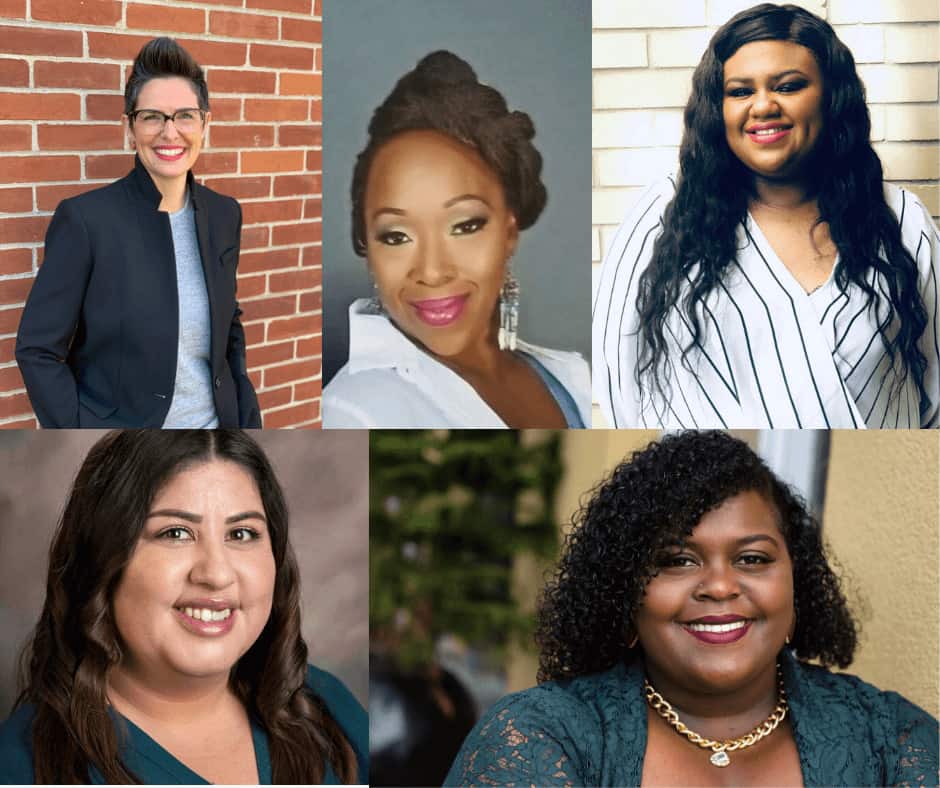Research shows that many professionals of color experience racism and/or microaggressions in the workplace, including from their supervisor. These experiences often come in the form of microaggression and other subtle forms of bias, and they erode trust between a supervisee and their supervisor. This experiential event opens with a panel of behavior analysts of color sharing their experiences with microaggressions in the work place. Then, attendees will engage in hands-on exercises to grow their skill sets in disrupting microaggressions in the workplace. Due to the didactic nature of this event, LIVE attendance is required.
ABOUT THE PRESENTERS
Dr. Victoria Farris
Victoria is a native New Yorker on a mission to encourage a more inclusive World. She is a disrupter, a truth teller, a justice seeker, an educator, a mother, and an activist. Her research focuses on understanding, from the perspectives of folks of color, what white people can do to disrupt and dismantle systemic racism, and Victoria has developed a framework for effective allyship that outlines an action-based guide for disrupting racism. Victoria is a dedicated leader and a skilled problem solver with a knack for working strategically across teams to drive change and enhance the client experience. She launched Farris Consulting in 2017 with the goal of supporting workspaces through equity and inclusion consulting, training, and coaching. Victoria has a bachelor’s degree in psychology from Marist College, a masters in higher education and student affairs from the University of Connecticut, and a doctorate in higher education management from the University of Pennsylvania.
Stephanie Bolden, BCBA
Stephanie is a principled and passionate woman, who has recently credentialed as a Board Certified Behavior Analyst. She is a proud Dillard University and Florida Institute of Technology alum! Her research interests include behavior analysts’ training and practices regarding cultural diversity, cultural and social determinants of behavior, behavior analysts’ supervisory relationships and the benefits thereof.
Dr. Marlesha Bell, BCBA
Dr. Marlesha Bell is a California State University, Northridge alumni. She obtained her Bachelors of Art in Psychology and Masters of Science in Applied Behavior Analysis. Dr. Bell attended the University of South Florida where she just recently obtained her Ph.D. in Applied Behavior Analysis. She has provided services to individuals with developmental disabilities for 11 years which includes clinical work and conducting research. Dr. Bell conducted her dissertation on teaching young children consent skills. Her current research interests are evaluating the influence of cultural variables on service provision (i.e., assessment, treatment, training) and increasing the recruitment and retention of diverse professionals in ABA.
Dr. Denice Rios, BCBA-D
Denice Rios, Ph.D., BCBA-D is a Lecturer at Georgia Southern University. Dr. Rios earned her bachelor’s and master’s degree from California State University, Northridge and her doctoral degree in Behavior Analysis from Western Michigan University under the advisement of Dr. Stephanie Peterson. Her research interests include use of behavior analytic strategies via telehealth, examining effective staff training strategies (e.g., feedback), and the assessment and treatment of elopement occasioned by transitions.
Shaneeria Brathwaite, BCBA
Shaneeria is a Board-Certified Behavior Analyst (BCBA) from Florida who is passionate about teaching others the principles of Applied Behavior Analysis. She has been in the field for eight years and specializes in child and adolescent behaviors. She works with a school district in Florida and founded United Behavior Analysis, Inc in 2019, which specializes in providing remote supervision to BCBA/BCaBA trainees and professional development rooted in ABA. She obtained her Master’s degree from the University of West Florida in Comprehensive Exceptional Student Education and her Bachelor’s degree from the University of South Florida in Psychology.
*NOTE: Please choose the appropriate event type below – “live event” or “recorded version”. Different CEU certificates are given for different event types.
About Instructor
Responses
You must be logged in to post a comment.


Thank you!
Thank you!